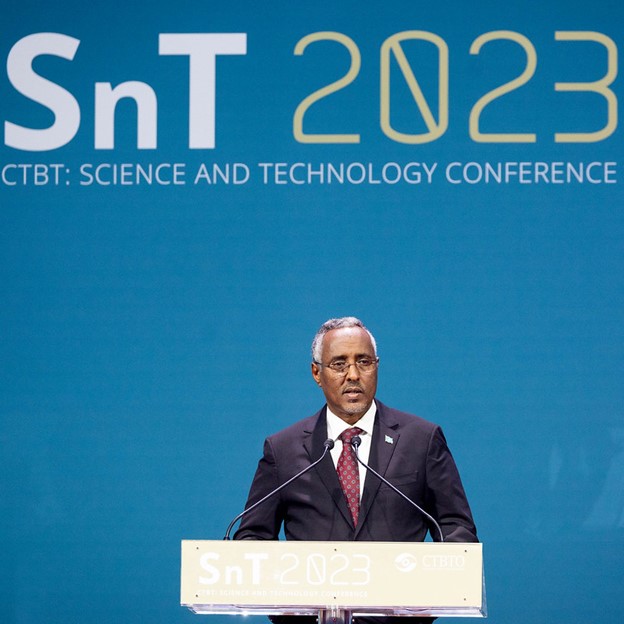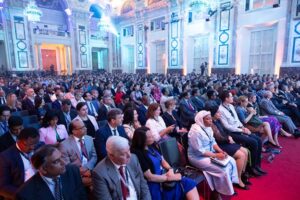
African leaders have reiterated “unwavering commitment” to a world free of nuclear weapons.
Speaking at the 2023 Comprehensive Nuclear-Test-Ban Treaty’s (CTBT) Science and Technology (SnT) Conference organised in Vienna, Austria, the Minister of Foreign Affairs and International Cooperation of Somalia, Abshir Omar Jama, said the continent is ready to play an active role in curbing the proliferation of nuclear weapons.
“Today, I stand here not only as a representative for Somalia but also a voice for Africa. Our continent, Africa, has endured the dreadful consequences of nuclear test explosions in the past. It’s therefore our shared responsibility to declare that never again should they be allowed [nuclear tests],” he stated.
“We understand that signing and ratifying the treaty is not merely a symbolic gesture but actually a testament to our unwavering dedication to global peace and security. Rest assured, we shall fulfil the needful,” he stressed.
“South Sudan is also keen to sign and ratify the CTBT as a commitment to international peace and security in the nearest time,” the Undersecretary of the Ministry of Foreign Affairs of South Sudan, Mayen Dut Wol, announced.

The CTBT bans nuclear explosions by everyone, everywhere – creating a firm and virtually unchallenged global norm against nuclear testing with near-universal support, signed by 186 countries to date and ratified by 177.
However, 44 specific nuclear technology-holding countries must sign and ratify before the CTBT can enter into force as international law. Ratification by eight of these so-called Annex 2 States is still required including China, Egypt, India, Iran, Israel, North Korea, Pakistan and the United States of America. Of these, India, North Korea and Pakistan are yet to sign the Treaty.
Success story
Despite the CTBT not entering into force, tests have been conducted on only 10 occasions since the treaty opened for signature in 1996, compared with more than 2,000 over the five previous decades.
Only one country – North Korea – has breached the norm and tested nuclear weapons this century.

Dr. Robert Floyd, Executive Secretary at the Comprehensive Nuclear-Test-Ban Treaty Organisation (CTBTO) said: “This is the power of togetherness. This what the CTBTO in partnership with all the state signatories represents”.
He said the CTBTO’s mission stems from a simple obligation of ensuring zero nuclear weapon testing. “We, collectively, are very, very good at detecting any explosion that might be a nuclear explosion. This makes them so much less likely to happen.”
International monitoring system critical
The United Nations Under-Secretary-General and High Representative for Disarmament Affairs, Izumi Nakamitsu, called for continuous and heightened collaborations among key stakeholders to deepen the CTBTO’s success.
“The conference therefore serves as a valuable opportunity for representatives from different fields to engage one another and exchange experiences and practices, to improve verification capabilities and promote their roles in strengthening the treaty,” she stated.
She also touched on the international monitoring system (IMS), describing it as critical to the success chalked up by the CTBTO thus far.
“Through its sharing of open data, the CTBTO has been able to make significant contributions in various fields. The CTBTO’s full potential will only be realised through the CTBT’s entry into force,” she added.









